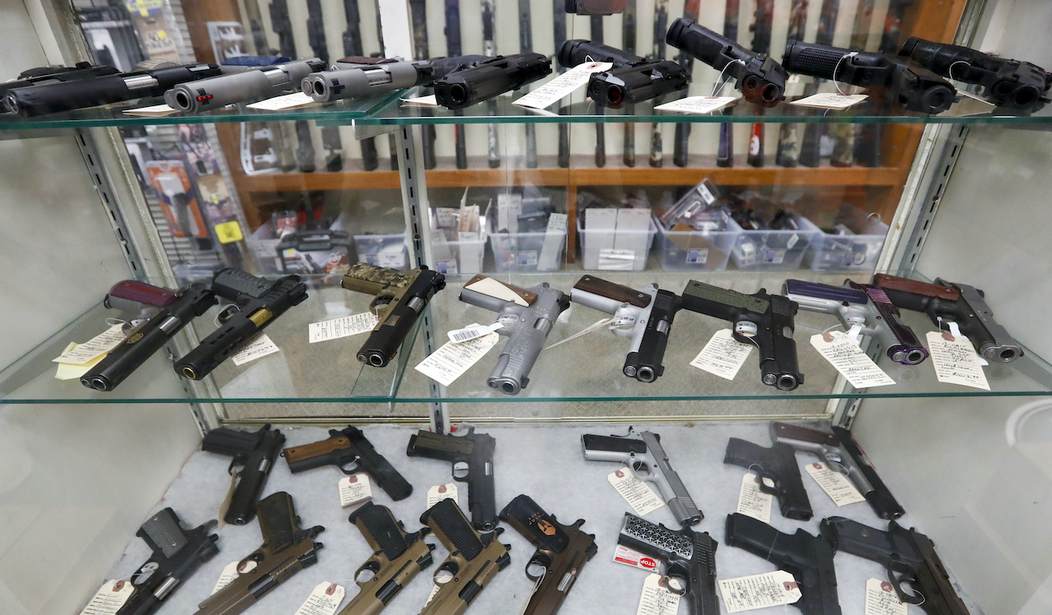The Supreme Court has already granted cert to two Second Amendment-related cases this term; Wolford v. Lopez, which challenges Hawaii's "vampire rule" limiting concealed carry on private property only to those locations where it is expressly allowed, and U.S. v. Hemani, dealing with the constitutionality of Section 922(g)(3)'s prohibition on gun possession by "unlawful" users of drugs.
There are a number of other 2A-related cases still pending the Court's review in conference, including lawsuits dealing with bans on so-called assault weapons and large capacity magazines, NFA items, other prohibited persons statutes, and the rights of young adults to keep and bear arms. While there's no guarantee that the justices will grant cert to any of them, one or more of the three lawsuits challenging laws barring adults under the age of 21 from purchasing or possessing firearms may be the most likely to be accepted by SCOTUS because lower courts have split on the issue.
The Solicitor General has urged the Court to hold off on hearing the two cases challenging federal statutes until the justices have decided Wolford and Hemani, arguing that the justices' guidance in those cases could have a direct bearing on McCoy v. ATF and West Virginia Citizens Defense League v. ATF (though DOJ has also argued that the plaintiffs in McCoy lack standing).
The plaintiffs in WVCDL have now replied to the Solicitor General's request, and argue that "since the filing of the petition in this case, the need for review has become more stark as the Government has made clear that “consistent with the executive branch’s ordinary practice of intra-circuit acquiescence, [it] do[es] not plan to enforce the [same laws]challenged [here] within the geographical boundary of the Fifth Circuit (i.e., the states of Texas, Louisiana, and Mississippi).”
The validity of a federal law, uniformity in the decisions of the courts of appeals on important constitutional issues, and uniformity in the enforcement of federal statutes are among the most important reasons this Court exercises its jurisdiction, and all three are present here.
The Fifth Circuit has held that the federal ban on handgun sales to adults younger than 21 violates the Second Amendment; a decision the DOJ decided not to appeal. The Fourth and Eleventh Circuits, meanwhile, have held that adults under the age of 21 can be barred from purchasing handguns at retail; and in the case of the Eleventh Circuit, under-21s can be prohibited from purchasing any firearm from an FFL. As a result, under-21s in three states (or at least the members of Second Amendment Foundation, Firearms Policy Coalition, and Louisiana Shooting Association) are free to purchase a pistol from their local gun store, but young adults in 47 other states and U.S. territories are still prohibited from doing so.
The plaintiffs argue that there's nothing in either the Wolford or Hemani cases that's likely to clear up the current circuit court split on the issue of young adults and their Second Amendment rights, and I think that's correct. But even if one or both of those cases would provide clarity, holding off on deciding WVCDL still deprives the current plaintiffs from getting the relief they're requesting.
... it is particularly inappropriate to hold (and presumptively send back for reconsideration) cases raising the validity of restricting 18-to-20-year olds’ exercise of Second Amendment rights. For Petitioner’s current 18-to-20-year-old members, delay in resolving this case means that they will never get meaningful relief, as they likely will age out of the restrictions as all of the original individual plaintiffs to this action already have done. Of course, those members will be replaced by other members who “age in” to the restriction being challenged, and thus this case will remain live. But the fact that effective relief maybe provided to different members does not alleviate the irreparable harm being visited on Petitioner’s current 18-to-20-year-old members. The right to keep and bear arms is one of the “fundamental rights necessary to our system of ordered liberty.” The question of whether the right extends fully to 18-to-20-year-old adults has been percolating in the courts of appeals for years and is fully ventilated. The parameters of the debate are well established, and it is now time for this Court to end the dispute once and for all.
This morning the Supreme Court officially scheduled WVCDL scheduled to be heard in the Court's November 14 conference along with McCoy v. ATF, which also challenges the ban on the sale of handguns to under 21s; NRA v. Glass, which takes on Florida's complete ban on gun sales to under-21s, and Paris v. SAF, which challenges Pennsylvania's carry restrictions for young adults.
The Supreme Court has distributed our lawsuit challenging Pennsylvania's age-based carry ban (along with three other cases challenging age-based gun bans) for its conference on 11/14: https://t.co/BsNTh0KmwJ
— Firearms Policy Coalition (@gunpolicy) October 29, 2025
If the Court acts quickly (which is always an uncertainty) and grants cert to one or more of these cases, we could get a decision by next June. I don't know if we'll get a trifecta of 2A cases this term, but there are compelling reasons for the justices to hear at least one of these challenges as soon as possible.
Editor’s Note: The Schumer Shutdown is here. Rather than put the American people first, Chuck Schumer and the radical Democrats forced a government shutdown for healthcare for illegals. They own this.
Help us continue to report the truth about the Schumer Shutdown. Use promo code POTUS47 to get 74% off your VIP membership.








Join the conversation as a VIP Member